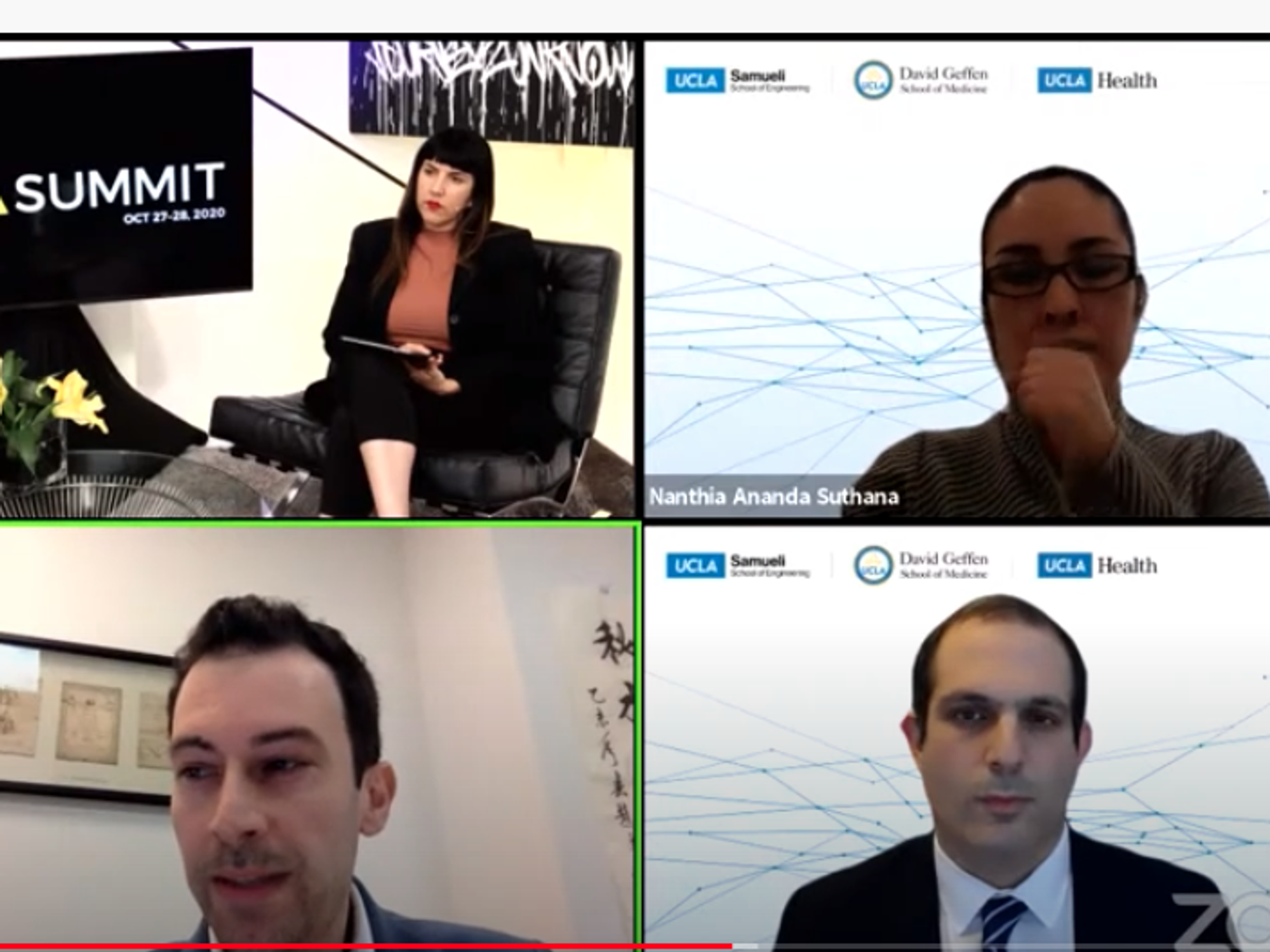These Scientists Are Making Brain Computers to Alter Memory
Francesca Billington is a freelance reporter. Prior to that, she was a general assignment reporter for dot.LA and has also reported for KCRW, the Santa Monica Daily Press and local publications in New Jersey. She graduated from Princeton in 2019 with a degree in anthropology.

Researchers are getting closer to using bionics to treat patients with memory loss and depression, but they'll have to address some crucial questions before it's commercialized. That's what three neurology UCLA researchers and professors said during the dot.LA Summit panel "Building the Bionic Human in L.A." hosted by managing editor Rachel Uranga.
Most of these concerns have to do with the ethics, safety and security of implanting brain chips, which are designed to stimulate memory functions for patients with Alzheimer's or inhibit them for patients with PTSD.
And they were skeptical about Neuralink founder Elon Musk's promises to quickly bring to market a device that interfaces with the brain that Musk says could ease depression or other ailments. The bottom line, they said, was that there's still a gap between the technology and what researchers know about the brain.
"What are the guarantees that we can provide for these devices? Can I guarantee it'll work on ten out of ten patients and if not, is it worth the risk associated with the implant?" said Fabien Scalzo, assistant professor of neurology and computer science at UCLA. "I think there are still a lot of questions regarding that."
Each of the panelists focus on a different aspect of bionic engineering at UCLA: Scalzo works with a team to produce the hardware that Nader Pouratian implants into the brain. Meanwhile, Nanthia Suthana examines its effects on the patient's neurological functions.
Pouratian, a professor and vice chair of neurology at UCLA's school of medicine, said brain stimulation devices evolved from cardiac pacemakers, the first of which were developed in the 1970s.
"It's the same idea," he said. "We've been using that technology for over two decades. It hasn't changed radically in that time until very recently."
Today, engineers, scientists and neurosurgeons are rallying around an industry that's seen rapid growth. Specifically, they're working to stimulate the brain with greater precision and listen to brain activity, similar to the way doctors listen to the heart. The other key component of development includes improving the patient experience. Think scaling down the size of these devices and making them both wireless and rechargeable.
"The fear of brain stimulators has significantly diminished," said Pouratian. "As we expand and understand that better and make it safer, I think we're going to see it much more commonly accepted and sought after."
The devices in development are largely geared toward helping people with ongoing conditions, but Pouratian said he could see a day when people use them cosmetically to enhance memory, for example. The prospect could potentially expand human potential but would raise a whole host of concerns including access and the possibility of these devices being hacked.
Suthana, a UCLA assistant professor of neurosurgery and bioengineering, said some of the fears you hear surrounding bionic solutions might be premature.
"We're not quite where people might think we are in terms of doing these nefarious things that people suggest or 'Black Mirror' likes to show in their shows," she said. "But it's still absolutely critical to think about these things before we go down this road."
- Kernel Raises $53M in Quest for Brain-Reading Machines - dot.LA ›
- Brain Chips and What's Next for Neuroscience - dot.LA ›
- Are Sports Cards the New Currency? - dot.LA ›
- UCLA Called Out for Not Making Research More Accessible - dot.LA ›
- Capsida Biotherapeutics Raises $140M for Its Gene Therapies - dot.LA ›
- Capsida Biotherapeutics Raises $140M for Its Gene Therapies - dot.LA ›
- Was Elon Musk's Neuralink Demo Just a Recruitment Tactic? - dot.LA ›
Francesca Billington is a freelance reporter. Prior to that, she was a general assignment reporter for dot.LA and has also reported for KCRW, the Santa Monica Daily Press and local publications in New Jersey. She graduated from Princeton in 2019 with a degree in anthropology.





 Image Source: Skyryse
Image Source: Skyryse